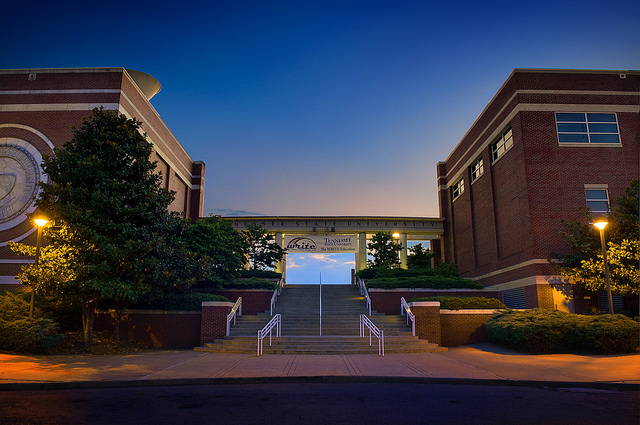NASHVILLE, Tenn. (TSU News Service) – Tennessee State University’s faculty, staff and students are excited about the opportunity to see the once-in-a-lifetime total solar eclipse on Aug. 21.
“This is a big thing,” said Willie Moore, a junior civil engineering major at TSU. “I want to make sure I am in the right place to see it.”
Astronomers say solar eclipses are not uncommon. There are typically two of them each year somewhere on the Earth, but most of the time the very narrow path of the total eclipse is a shadow over the ocean.
The one occurring on Aug. 21 is unique because it crosses the entire United States, and Nashville is the largest city within the entire eclipse’s path.
The last total solar eclipse visible in Nashville was July 29, 1478, according to NASA. After Aug. 21, the next one that can be seen in Nashville will be on Aug. 16, 2566.
“I am really excited about it,” said Peggy Earnest, chief of staff, Office of Student Affairs at TSU. “We are just privileged. We won’t see this again in the same spot in many more years.”
During a solar eclipse, the moon passes between the sun and Earth and blocks all or part of the sun for up to about three hours, from beginning to end, as viewed from a given location.
On Aug. 21, the partial eclipse (when the moon starts to inch over the sun) begins at 11:58 a.m. The start of the full totality (meaning the sun is completely covered by the moon) in Nashville will begin at 1:27 p.m. and ends approximately 1:29 p.m. The partial eclipse ends at 2:54 p.m.
Viewers are asked to practice safety during the eclipse and not look directly at the sun, except when it is completely blocked during the period of total eclipse, or totality.
Department of Media Relations
Tennessee State University
3500 John Merritt Boulevard
Nashville, Tennessee 37209
615.963.5331
About Tennessee State University
With more than 9,000 students, Tennessee State University is Nashville’s only public university, and is a comprehensive, urban, co-educational, land-grant university offering 38 bachelor’s degree programs, 25 master’s degree programs and seven doctoral degrees. TSU has earned a top 20 ranking for Historically Black Colleges and Universities according to U.S. News and World Report, and rated as one of the top universities in the country by Washington Monthly for social mobility, research and community service. Founded in 1912, Tennessee State University celebrated 100 years in Nashville during 2012. Visit the University online at tnstate.edu.
